-
Adopt
-
Veterinary Care
Services
Client Information
- What to Expect – Angell Boston
- Client Rights and Responsibilities
- Payments / Financial Assistance
- Pharmacy
- Client Policies
- Our Doctors
- Grief Support / Counseling
- Directions and Parking
- Helpful “How-to” Pet Care
Online Payments
Referrals
- Referral Forms/Contact
- Direct Connect
- Referring Veterinarian Portal
- Clinical Articles
- Partners in Care Newsletter
CE, Internships & Alumni Info
CE Seminar Schedule
Emergency: Boston
Emergency: Waltham
Poison Control Hotline
-
Programs & Resources
- Careers
-
Donate Now
April marks the Prevention of Cruelty to Animals Month, a nationwide observance dedicated to raising awareness about the mistreatment of animals and finding ways to combat animal cruelty. Regrettably, animal cruelty remains pervasive and manifests in various forms. Furthermore, it frequently serves as a precursor to other violent offenses, including domestic abuse, elder abuse, child abuse, and homicide. In a discussion with MSPCA-Angell Animal Advocacy experts Kara Holmquist and Lynsey Legier, we explore the prevalent types of animal cruelty in today’s society, methods for recognizing and reporting suspected cruelty, and avenues for individuals to contribute to the reduction of animal abuse.
Recognizing animal cruelty
There are two kinds of cruelty when it comes to animals. The first is passive cruelty, which is when an animal is neglected. The second type is active cruelty, and like the name, it’s a more violent or deliberate abuse with the intent of hurting the animal. Some examples include blatantly hitting an animal or forcing an animal to engage in malicious activities like animal fighting.
“I think when most people think of animal cruelty, they think of active cruelty,” explained Lynsey Legier, Staff Attorney for the MSPCA Animal Protection Division. “But neglect cases can be just as bad, if not worse, than some of those active cruelty cases, for example, when an animal is deprived of food and water for long periods of time, left in unsanitary conditions, not provided proper shelter, or is subjected to pain and suffering because of a lack of necessary veterinary care.” Legier continued to say that neglect can be a longer, slower, and more painful circumstance for an animal to exist in. Both active and passive cruelty are violations of the animal cruelty statute.
Common signs of animal cruelty
While most people recognize cruelty when an animal is abused, subtle warning signs may go unnoticed if you don’t know what to look for.
Common signs that an animal may be a victim of cruelty:
- observed violent behavior towards an animal (hitting or kicking the animal)
- unexplained broken bones
- untreated open wounds
- animals sent home against medical advice while suffering
Different forms of animal cruelty
Neglect
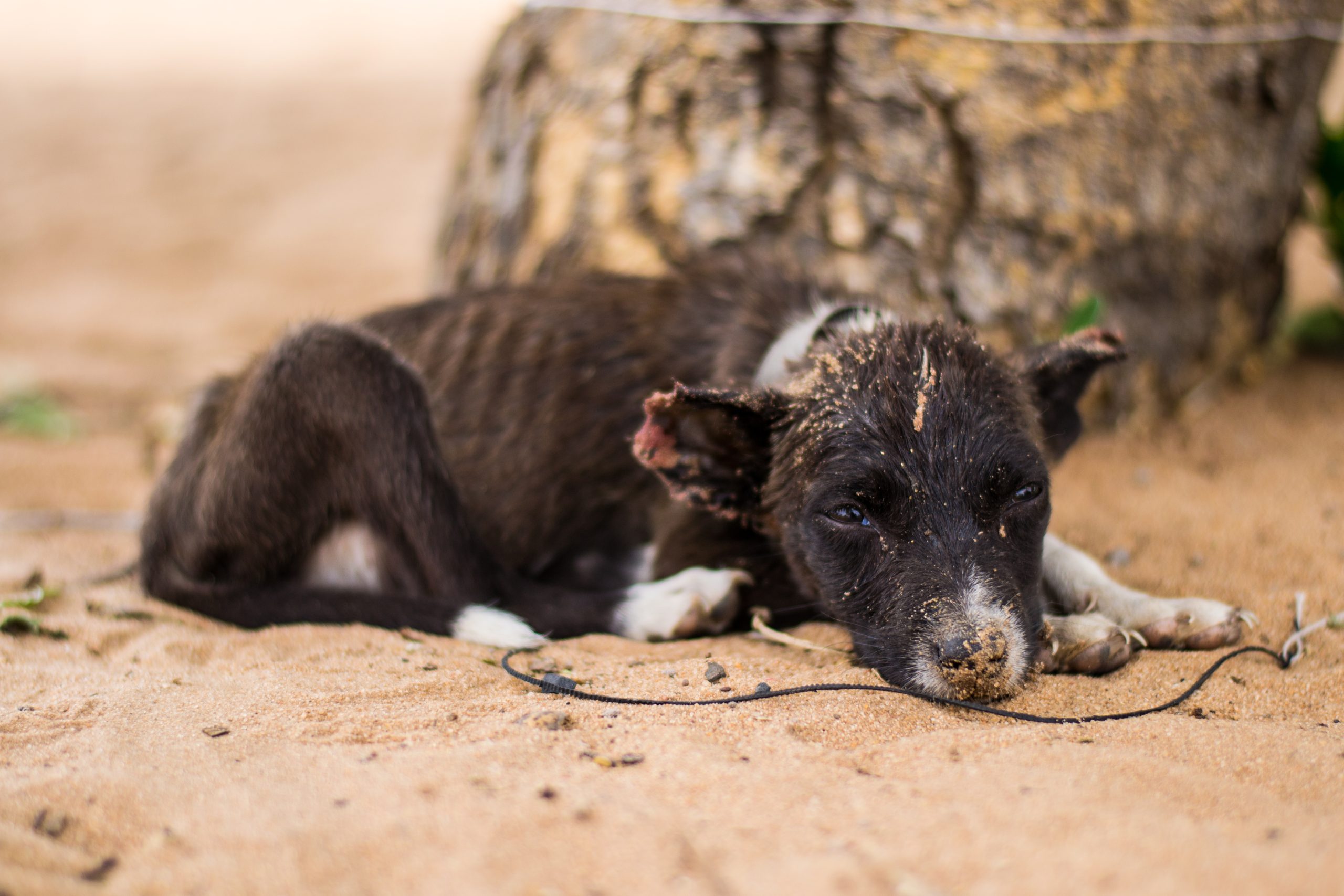
Neglect is the most common type of animal cruelty. Neglect ranges from tying an animal up or keeping the animal in a cage to not providing necessary sustenance, whether food, water, or veterinary care. Animal owners are not always expected to provide the most extreme veterinary care. However, they still have to ensure that they provide veterinary care to prevent an animal from suffering.
“If an animal is suffering, the law requires that you act and provide a pathway in which the animal can be relieved of that suffering,” said Legier. “Whether that means seeking veterinary care to relieve pain or electing to humanely euthanize an animal when that is the only option.”
Industrial Animal Farming
Often referred to as “factory farming,” industrial farming centers on the animals that provide humans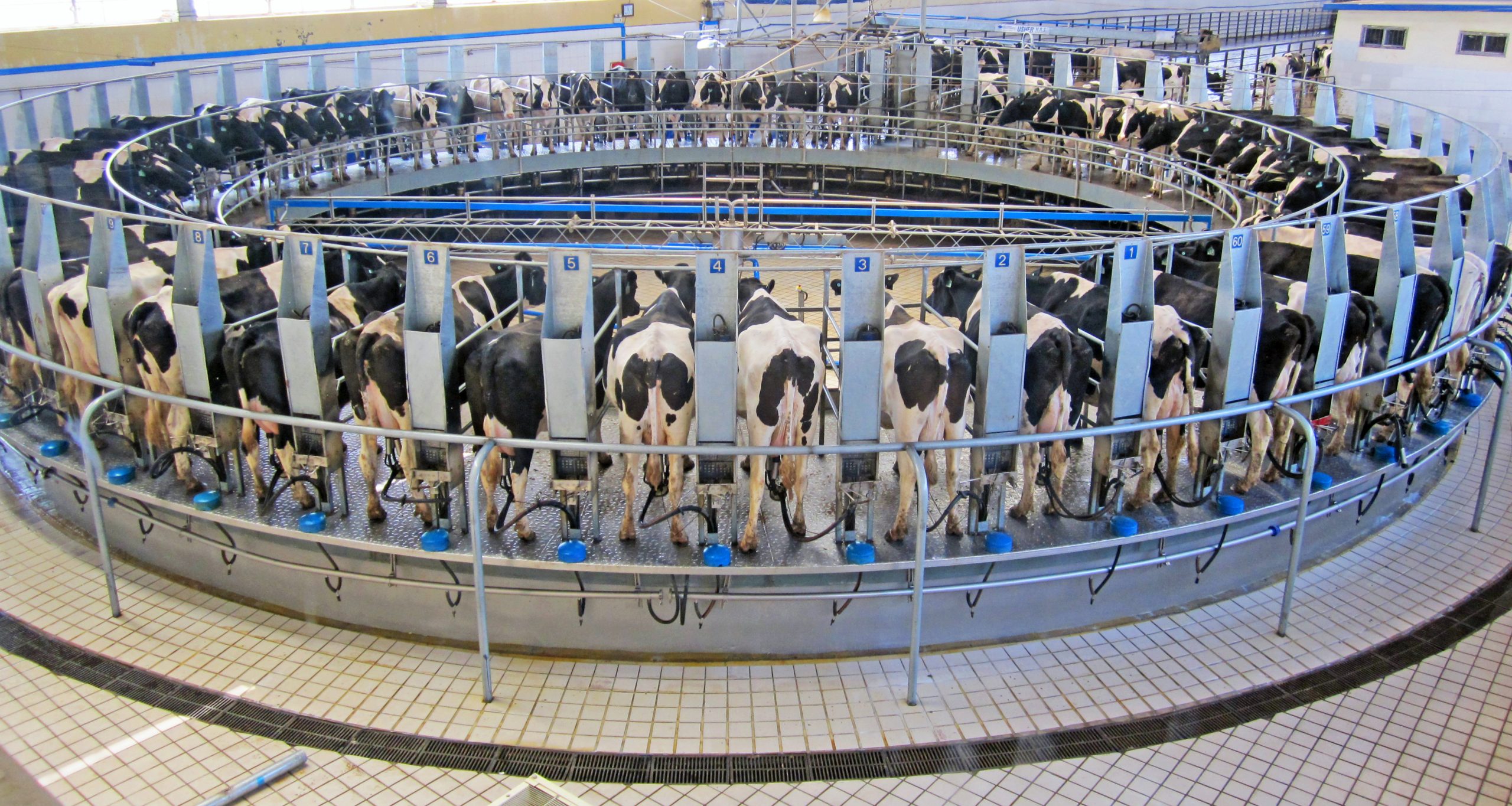 with food, whether it’s meat, milk, or eggs. The animals endure extreme confinement in small cages with little to no room to move, and they’re essentially treated as food-making machines. These farms operate at the lowest costs possible – which significantly impacts the animals’ lives.
with food, whether it’s meat, milk, or eggs. The animals endure extreme confinement in small cages with little to no room to move, and they’re essentially treated as food-making machines. These farms operate at the lowest costs possible – which significantly impacts the animals’ lives.
Thankfully, there have been laws passed in parts of the US to address these issues. “Massachusetts passed Question 3 in 2016 that banned the cruel confinement of farm animals,” explained Kara Holmquist, Director of Animal Advocacy at the MSPCA-Angell. The law now states that egging-laying hens, veal calves, and gestating pigs have enough space to stand up, turn around, and spread their limbs.
Circuses
Circuses force wild, exotic animals to perform acts for entertainment – animals that, under normal circumstances, would live outdoors, free from human contact. “Animals in circuses very much suffer from the training and the transportation,” explained Holmquist. “They tend to live their lives in confinement, and physical punishment is used to get them to perform performances and tricks.”
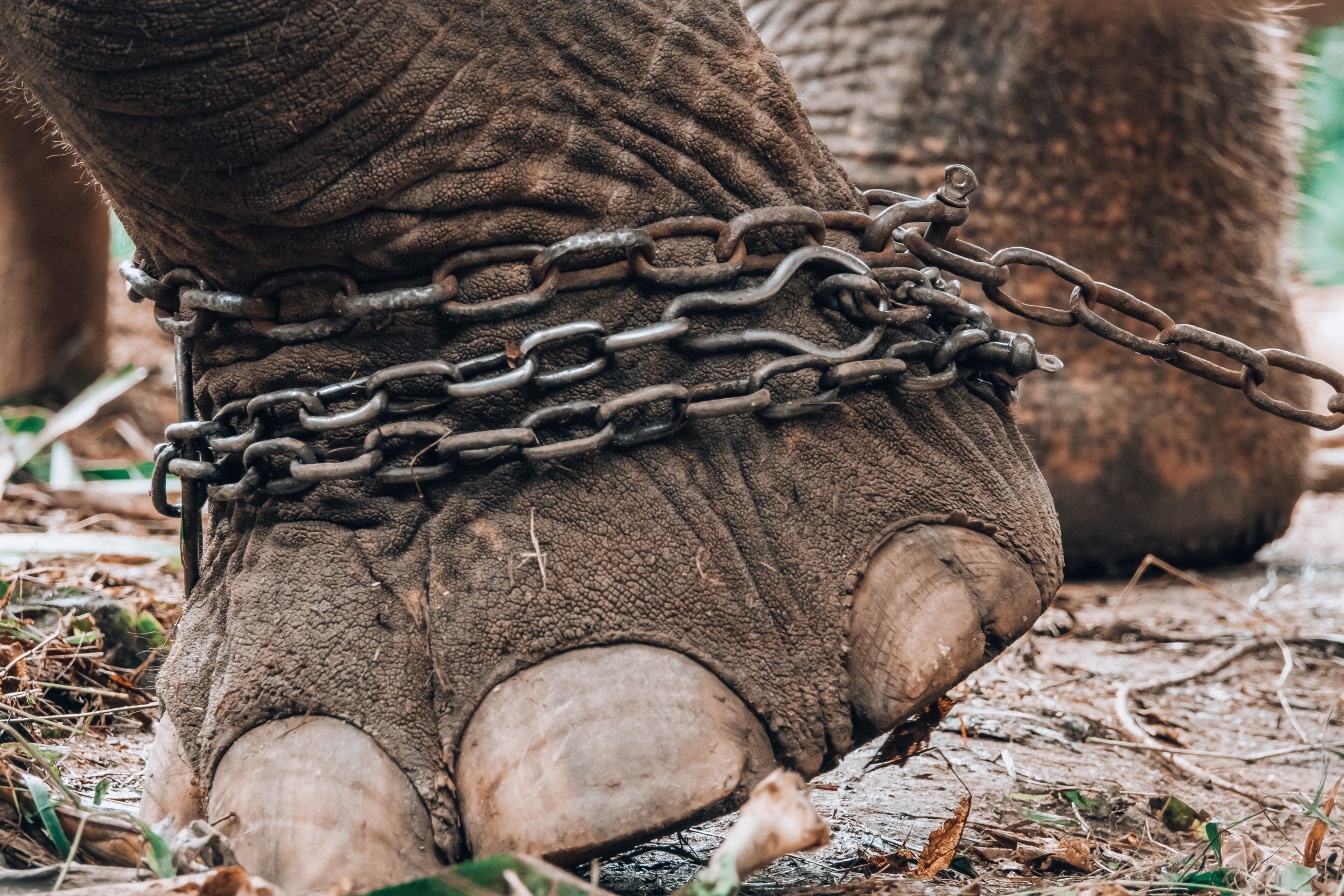
Circus animals are removed from their families at a young age and then often forced to live in confinement. They’re “trained” to do tricks and other performances by enduring abusive methods, including restraints, bullhooks, chains, clubs, whips, and electric shock devices. They’re deprived of adequate exercise and appropriate social groupings, so they often become severely depressed and ill. And if the animals are on the road in a traveling circus, they may not have access to immediate, expert veterinary care.
Wild animals are dangerous and unpredictable, and their use in traveling acts puts the public at risk. Sick animals also put the public at risk. “Diseases like tuberculosis can be passed from wild animals in circuses,” explained Holmquist. “And people have been injured by wild animals when they’ve broken free and escaped.”
Thankfully, state and local laws worldwide have slowly started to help curb the way most circuses have operated in the past. And Ringling Brothers, one of America’s oldest circuses, phased out using animals in 2016.
Dogfighting/Cockfighting
Dogfighting is a “blood sport” purely meant for entertainment and profit. Two dogs trained to fight are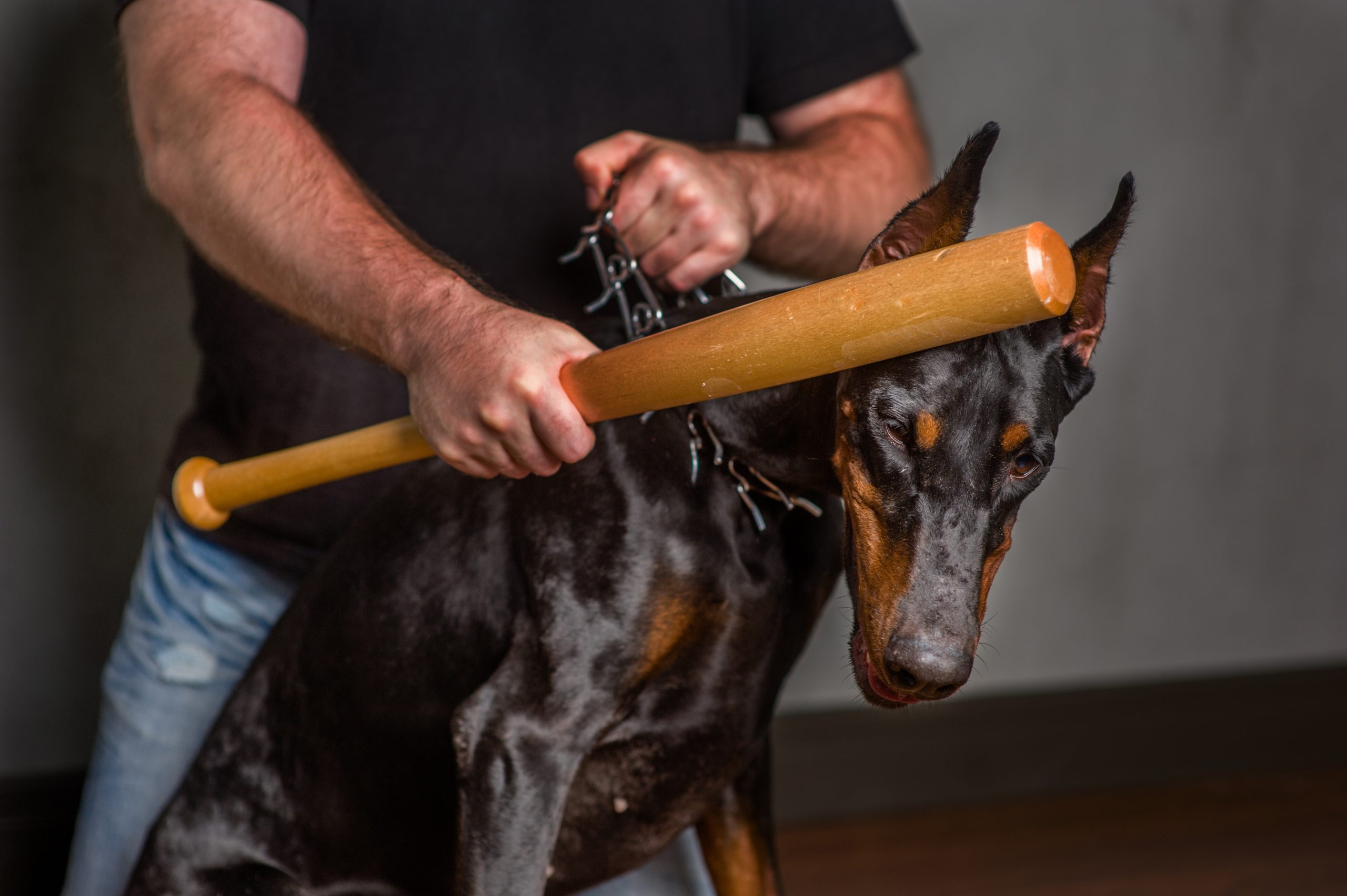 forced to attack each other, and the violence only ends when the dogs physically can’t continue. These dogs used for fighting are typically raised isolated and live on a chain. They can fight as they do because they’re often injected with steroids to help increase their body mass. The drugs used also increase a dog’s aggression. Although the fights don’t always lead to death, most dogs are seriously injured after they end and die. And the dogs that lose the battles? Many are simply killed by their owners because they are no longer profitable.
forced to attack each other, and the violence only ends when the dogs physically can’t continue. These dogs used for fighting are typically raised isolated and live on a chain. They can fight as they do because they’re often injected with steroids to help increase their body mass. The drugs used also increase a dog’s aggression. Although the fights don’t always lead to death, most dogs are seriously injured after they end and die. And the dogs that lose the battles? Many are simply killed by their owners because they are no longer profitable.
Cockfighting is similar to dogfighting in that the roosters are isolated and tied up – depriving them of their natural habitat and stimuli – and most are injected with steroids and other adrenaline-boosting drugs that stimulate them to aggression. Sharp blades – often called spurs – are tied to their legs, and the roosters are usually not allowed to be removed from the fight, regardless of how injured they become. Most roosters succumb to their injuries after a fight.
While a lot of organized dog fighting and cock fighting still exist in the southern parts of the United States, this act of cruelty occurs in the Northeast as well. “I think many people don’t think it exists here and don’t necessarily expect to see it in our backyards, but that is not true,” said Legier. “We [at the MSPCA-Angell] and other law enforcement still see well-funded, street-type animal fighting in someone’s backyard or in their basement.”
Legier continued that this type of cruelty to animals goes hand-in-hand with other forms of criminal activity. “When you have an individual involved in animal fighting, they are often times involved in other criminal enterprises such as gambling, illegal firearms offenses, drugs, and gang violence. Sometimes, there are children who are present at the fights and are subjected to crime and violence at an early age, which can desensitize them to this animal cruelty. They grow up and engage in it themselves as adults.”
Puppy Mills
In ways similar to factory farming, puppy mills focus on breeding dogs for profit over the well-being of the dogs. Female dogs (old enough to reproduce, as young as four months old) are bred continuously, usually with no time for recovery or medical care. Then, they may be discarded once they can no longer have puppies. The litter born from this type of overbreeding – and sometimes inbreeding – often come into this world genetically compromised with health issues, which are later passed down to every generation of offspring.
States have cracked down on the operation of puppy mills over the past several years – starting with commercial pet stores, which have been the biggest purveyors of puppy mill dogs. Holmquist explains that Massachusetts has approached it in two ways. “Legislation, both on a state and local level, would prevent pet shops from selling dogs, cats and rabbits, and sometimes guinea pigs because those animals come from large-scale commercial breeders for the most part, especially with the dogs,” she explained. She continued to say that responsible breeders – those concerned about where their animals are going – will not sell to a pet store.
Puppy mills may also try to sell online. So, how do you make sure you’re buying a non-puppy mill dog? “Ask questions – go see the parents, go see the dog, go see at least the mom,” suggested Holmquist. “Talk to the breeders about what they screen for regarding genetics. See the puppies and what type of environment they’re in. Is it clean? Is it sanitary? And ask for references – people who have bought a puppy from them before.”
Ways to help support animal cruelty prevention
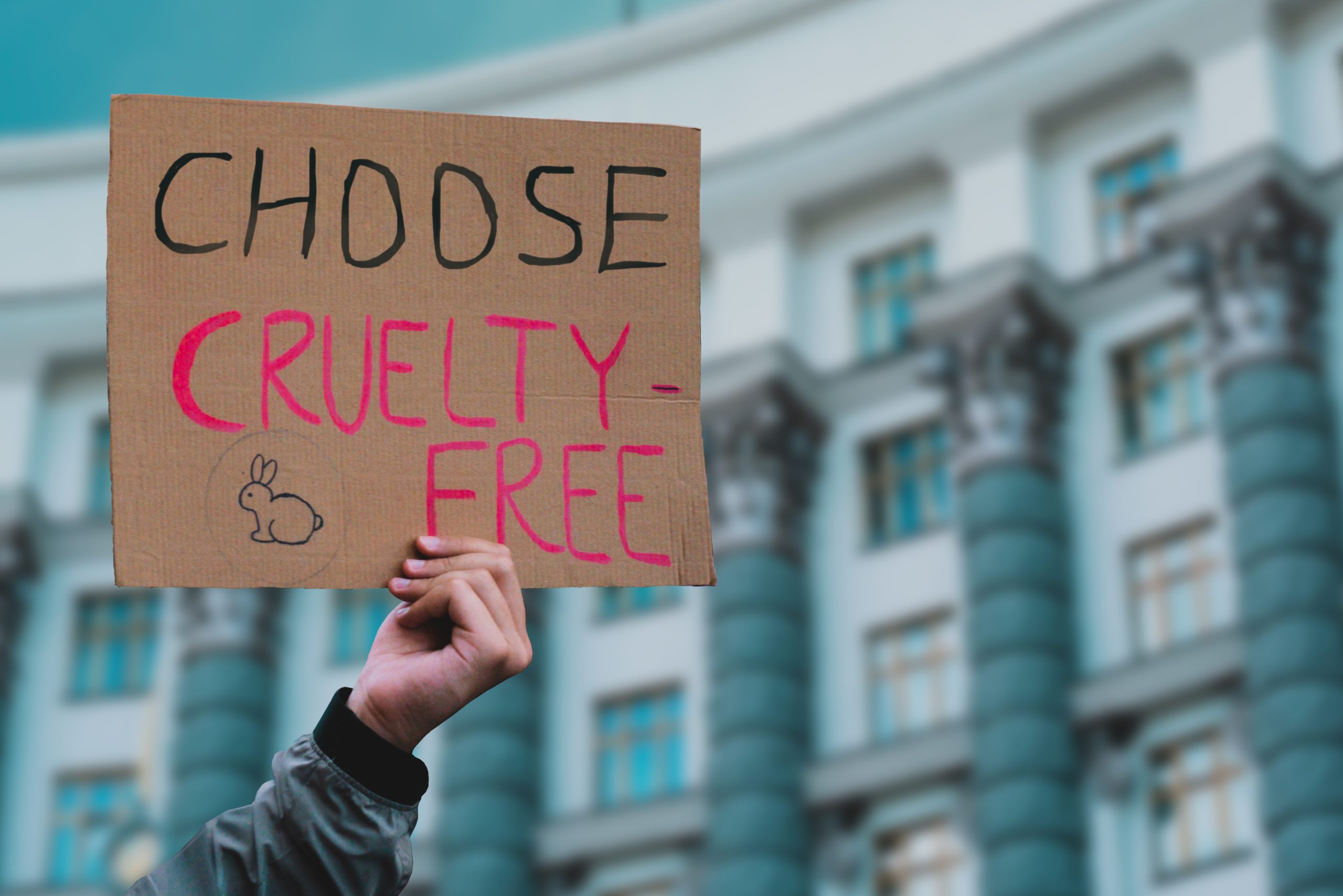 Why is preventing animal cruelty important? Not only is it wrong to inflict suffering on any living creature, but there’s also evidence that those involved with animal cruelty are often engaged in other types of crimes.
Why is preventing animal cruelty important? Not only is it wrong to inflict suffering on any living creature, but there’s also evidence that those involved with animal cruelty are often engaged in other types of crimes.
“Animal abuse doesn’t happen in a vacuum. If an animal is being abused, there can likely be human violence in that situation, too,” said Holmquist. Though it makes sense to alert authorities about suspected animal cruelty, the reality is that people are hesitant to report things. “When a person is a witness to any kind of crime, they get nervous – and then don’t want to come forward,” said Legier. “But reporting is important. You can’t think, ‘Well, someone else must have seen this – they’ll report it.’ You need to intervene if you see it happening.”
Legier suggests contacting law enforcement who have state-wide jurisdiction to enforce animal cruelty laws, like the MSPCA Law Enforcement department. “Our law enforcement officers have statewide jurisdiction to investigate and enforce animal protection laws, including animal cruelty, across the entire Commonwealth,” she explained. But Legier also encourages contacting your local police department if you suspect animal cruelty. “ Just be aware of who you’re reporting it to – if you’re not reporting it to one of the statewide special state police agencies and instead to your local police or animal control, make sure that your report gets to the right people, to law enforcement officers who have the authority to investigate and prosecute criminal offenses,” she said. Legier continued to say that if someone brings their animal to a veterinarian and the veterinarian suspects the animal is a victim of any form of cruelty, veterinarians are mandated reporters under the law, and they must report it to law enforcement.
Other ways to help promote animal cruelty prevention, in addition to reporting animal cruelty, Holmquist suggests joining your local animal advocacy group if there’s one available. Making informed consumer choices helps, too – making a conscious effort not to buy products – or supporting industries – that cause animals harm.
* * * * * * * *
For more information on preventing animal cruelty, as well as a look at how the MSPCA-Angell supports long-term changes for animals, please visit angell.org/advocacy.
To read more about anti-cruelty laws in Massachusetts or if you need to report suspected animal cruelty, please see angell.org/cruelty-prevention.



